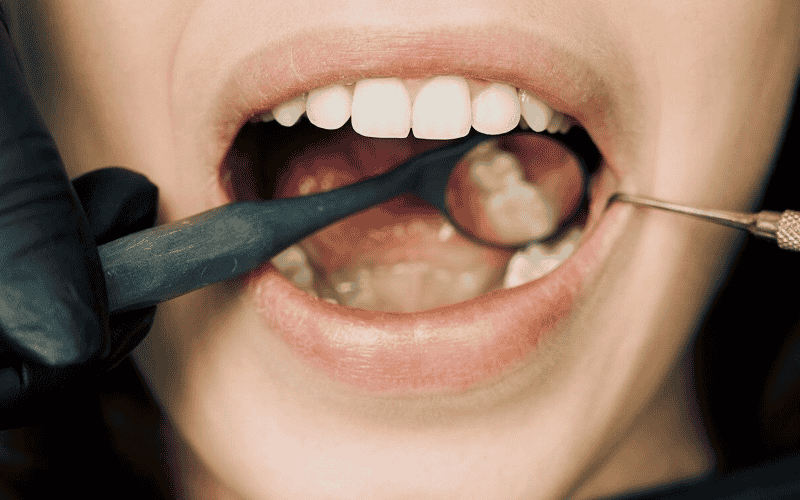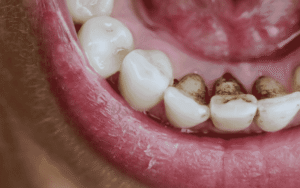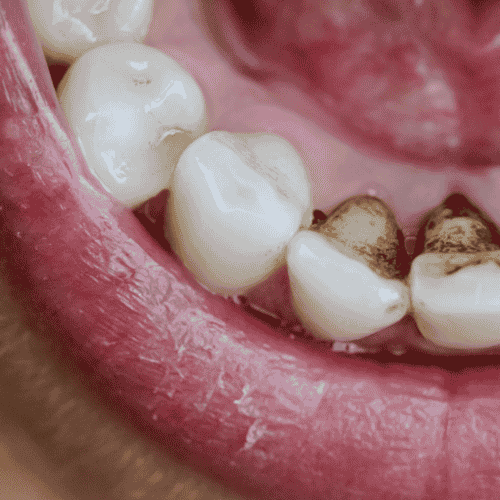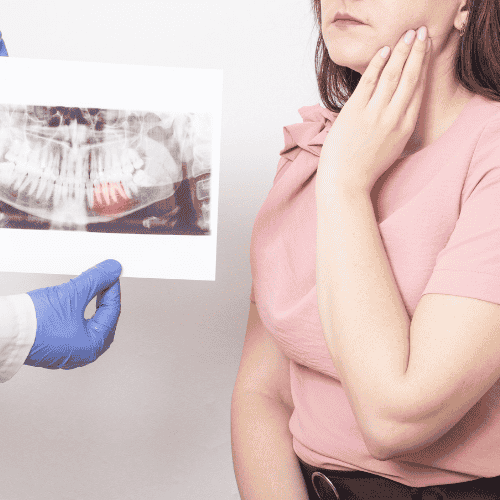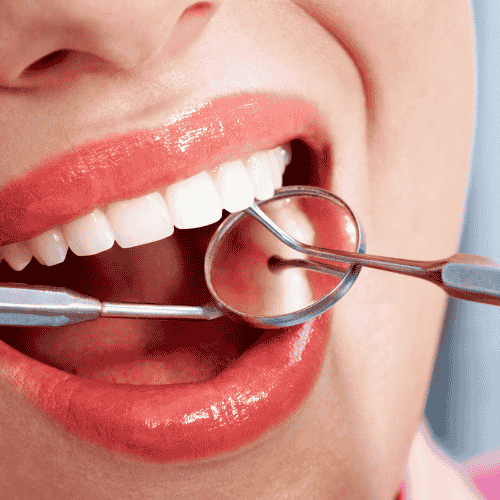Why Do We Have Wisdom Teeth if We Don't Use Them?
Third molars, or wisdom teeth, were vital to our ancestors. Early humans used their bigger jaws and molars to break down tough veggies and meat. This helped them break down food. People’s jaws have shrunk over time because of changes in diet, cooking, and tools. Modern foods are easier to chew, and wisdom teeth no longer serve their original purpose.
So, why do humans have wisdom teeth if we no longer need them? The purpose of wisdom teeth was to assist our ancestors in breaking down hard foods. Wisdom teeth function is less important today due to soft foods and modern tools.
Wisdom teeth erupt between 17 and 25, but their presence causes discomfort, suffering, and other dental issues due to a lack of mouth space. Wisdom tooth extraction isn’t always essential, although many people undergo it to prevent future issues. If they’re healthy, aligned, and don’t create problems, people may maintain their wisdom teeth. This is why wisdom teeth exist even though we don’t need them anymore: they’re leftovers from evolution.
How Wisdom Teeth Developed and Why Humans Once Needed Them
Third molars, or wisdom teeth, were vital to early humans’ survival. Raw meats, nuts, and fibrous plants sustained our ancient ancestors. An additional pair of teeth was needed to chew these rough, hard meals. Early human jaws were large enough for these third molars, which erupted naturally without difficulties.
So, why did we need wisdom teeth? They were necessary for chewing before cooking, and tools made it easier to eat. The possible function of wisdom teeth decreased as cooking and meal preparation improved diets. Our mouths became smaller, which meant there was less room for molars.
Today, wisdom teeth frequently develop improperly, causing discomfort, crowding, or infection. Why do we grow wisdom teeth if they cause trouble? Because they’re an evolutionary leftover. Why do we still have wisdom teeth, and why do we even have wisdom teeth? Evolution hasn’t completely phased them out.
Wisdom teeth usually appear between 17 and 25, however some never completely grow. Evolution, changing feeding patterns, and smaller jaws explain why do wisdom teeth come in later and sometimes stay hidden. This raises another question, do everyone have wisdom teeth? The answer is no. Some people never grow them due to genetics and jaw evolution.
Wisdom teeth highlight how our anatomy evolved to adapt to changing diets and lifestyles, even if their original wisdom teeth purpose has faded.
When and How Wisdom Teeth Typically Erupt

All teeth develop before birth and erupt as they grow. First, 20 baby teeth come in and fall out so that 32 permanent teeth can fit in their place. The first set of teeth comes in around age 6, and the second set around age 12. Between the ages of 17 and 21, wisdom teeth normally come in.
So, why do wisdom teeth grow so late? Because they’re the last set of molars, appearing when the jaw stops growing.
Modern diets and food preparation make wisdom teeth less necessary for life, according to anthropologists. Thus, some may never grow them. This variation shows why are wisdom teeth a thing; a holdover from evolution.
At least 53% of person over 25 have had a wisdom tooth, according to surveys. Interestingly, males have more wisdom teeth than women.
Even hidden wisdom teeth may be detected by X-ray, proving that why do wisdom teeth exist often depends on genetics and evolution.
Why We No Longer Need Wisdom Teeth Today
Human evolution altered our physical structure. As our jawbones shrank, we no longer had room for all 32 teeth.
Along with physical changes, our diets changed. Humans started cutting, chopping, boiling, steaming, and baking instead of eating rough, raw foods that required more chewing. Diet changes lowered the requirement for strong back teeth to chew.
Our jawlines have narrowed due to these new eating habits. Modern jaws lack room for wisdom teeth, making them useless. They are often removed to avoid discomfort, infection, and misalignment.
Common Problems Caused by Wisdom Teeth
Human jawbones have shrunk with evolution. This anatomical change has led to a scenario where wisdom teeth typically lack the room to develop correctly. Some people have no problems with their wisdom teeth, while others have problems when they become impacted or misaligned.
Impacted Wisdom Teeth
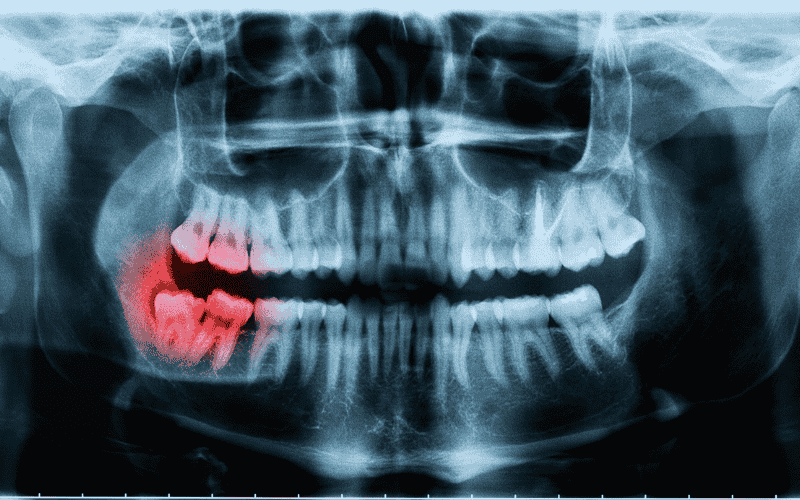
Wisdom teeth might become impacted and not erupt through the gums. Swelling, pain, and tooth issues might result. Wisdom teeth impaction affects up to 72% of person. When the jaw is too small for the teeth to emerge, they become trapped behind the gum line.
Pericoronitis
Pericoronitis may result from a wisdom tooth impact. Between the gum and the partially exposed tooth, bacteria grow. It can hurt, grow up, make it hard to open your mouth, give you bad breath, and cause pus. In the worst cases, pericoronitis can lead to sepsis.
Root Damage
Wisdom teeth impacting surrounding teeth might harm their roots. Wisdom tooth pressure may weaken the neighbouring tooth’s root, threatening the molar’s stability. It may need substantial dental procedures to fix this.
Pressure and Damage
In addition to root damage, impacted wisdom teeth could harm neighbouring teeth. This pressure may misalign, damage, or bother adjacent teeth, necessitating treatment.
Cysts and Tumours
Wisdom teeth, however rare, may cause cysts or tumours. Fluid-filled cysts occur around impacted teeth. Untreated benign tumours may develop and harm the surrounding bone and tissues.
General Pain and Discomfort
Wisdom teeth may cause pain whether impacted or not. Pressure on neighbouring teeth, gums, and bone may cause chronic discomfort that may be difficult to manage without dental treatment.
Hygiene Issues
Wisdom teeth, which are in the back of the mouth, are hard to clean, which raises the risk of cavities. Bad mouth hygiene around these teeth can also lead to gum disease and tooth loss.
Temporomandibular Joint Disorders (TMD)
Wisdom teeth, especially impacted ones, may change the jaw position, stressing the TMJ. This could make the jaw stiff, hurt, make it hard to open the mouth, and change the way you bite.
Wisdom Tooth Infection: Symptoms and Causes
Wisdom teeth are located in the back of the mouth and are more susceptible to infections. Their placement makes flossing difficult, which may cause bacteria buildup.
When these teeth erupt into a mouth full of teeth, they may be impacted. Wisdom teeth may become hard to clean, causing bacteria-filled spaces. Soft tissue may cover an impacted wisdom tooth, causing pericoronitis.
Common signs of wisdom tooth infection:
- Pain or sensitivity around the infected teeth
- Swollen or tender gums
- Gums that are red or bleeding
- Pus or white fluid flowing around teeth
- Bad breath
- A bad taste in your mouth
- Jaw discomfort or oedema
- Stiff jaw
- Difficulty opening the mouth, speaking, or breathing
If you have any of these signs, especially back molar pain, you should see your dentist right away to get a full diagnosis and treatment plan.
Effective Treatment Options for Infected or Impacted Wisdom Teeth
Treatment for wisdom tooth infections varies depending on severity and location. Antibiotics are usually prescribed initially by your dentist to treat the infection. Your dentist may recommend dental treatment or surgery to avoid infection when the infection is gone.
Some dentists propose fixing cavities or gaps surrounding the erupting tooth to restore it. This reduces bacteria-filled gaps that create issues.
If the infection is serious or the wisdom teeth are painful, removal may be recommended. These treatments help address what causes wisdom teeth problems and prevent long-term complications.
Your dentist will explain your treatment choices and propose the best one for you.
When and Why Wisdom Teeth Are Removed
Wisdom teeth, or third molars, are routinely removed without infection. This is because they might overcrowd the mouth and move other teeth as they develop. Once they come through, dentists may recommend removal to avoid future pain and difficulties.
Dentists may recommend removing wisdom teeth before braces. This prevents these teeth from interfering later and disrupting your teeth and jaw alignment.
Early evaluation helps younger patients recover quickly. Still, understanding why do we grow wisdom teeth and why do we need wisdom teeth helps people make informed choices.
Although wisdom teeth removal is widespread, the dangers must be understood. Talk to your dentist or oral surgeon before deciding. To avoid problems, your dentist will regularly monitor your wisdom teeth if you don’t undergo the operation. Untreated wisdom teeth might cause problems.
Whether you remove the teeth or not, follow your dentist’s advice. A dentist or oral and maxillofacial surgeon may remove it. They’ll provide you with full preparation and restoration advice.
Recovery and Healing After Wisdom Tooth Removal
Following wisdom teeth removal, your mouth will be more vulnerable to infections, so follow your dentist’s aftercare advice. It’s common to rinse with saltwater, avoid smoking, and avoid meals with microscopic particles like seeds that might become stuck in your healing gums.
A few days are typical for wisdom teeth surgery recovery. However, some pain might linger for a week. Ask your dentist about safe painkillers for healing.
Many find healing difficult, but it’s necessary to prevent tooth issues and invasive treatments. Proper maintenance can ease your recovery and spare you from wisdom tooth troubles.
Are There Any Reasons to Keep Your Wisdom Teeth?
Wisdom teeth are seldom useful and may not be needed. However, wisdom teeth may be beneficial in certain cases.
Wisdom teeth may help you chew like other teeth if they’re healthy and positioned. Maintaining them may support neighbouring teeth and prevent movement.
Mature wisdom teeth may also replace broken molars. When first and second teeth are beyond repair, third molar transplantion may restore their function and appearance.
Your dentist may advise you to maintain or delay removal of the wisdom teeth:
- If you are pregnant, elective procedures are generally delayed until after delivery.
- If you have an active infection surrounding your wisdom teeth, your dentist may recommend antibiotic treatment before removal.
- A compromised immune system increases the risk of infections and surgical complications.
- Chemotherapy or radiation treatment may raise the chance of osteonecrosis, a rare but dangerous disease that causes jawbone loss of blood flow and death.
Discuss with your dentist whether keeping wisdom teeth is right for you. In some rare cases, what do wisdom teeth do still benefit oral function.



